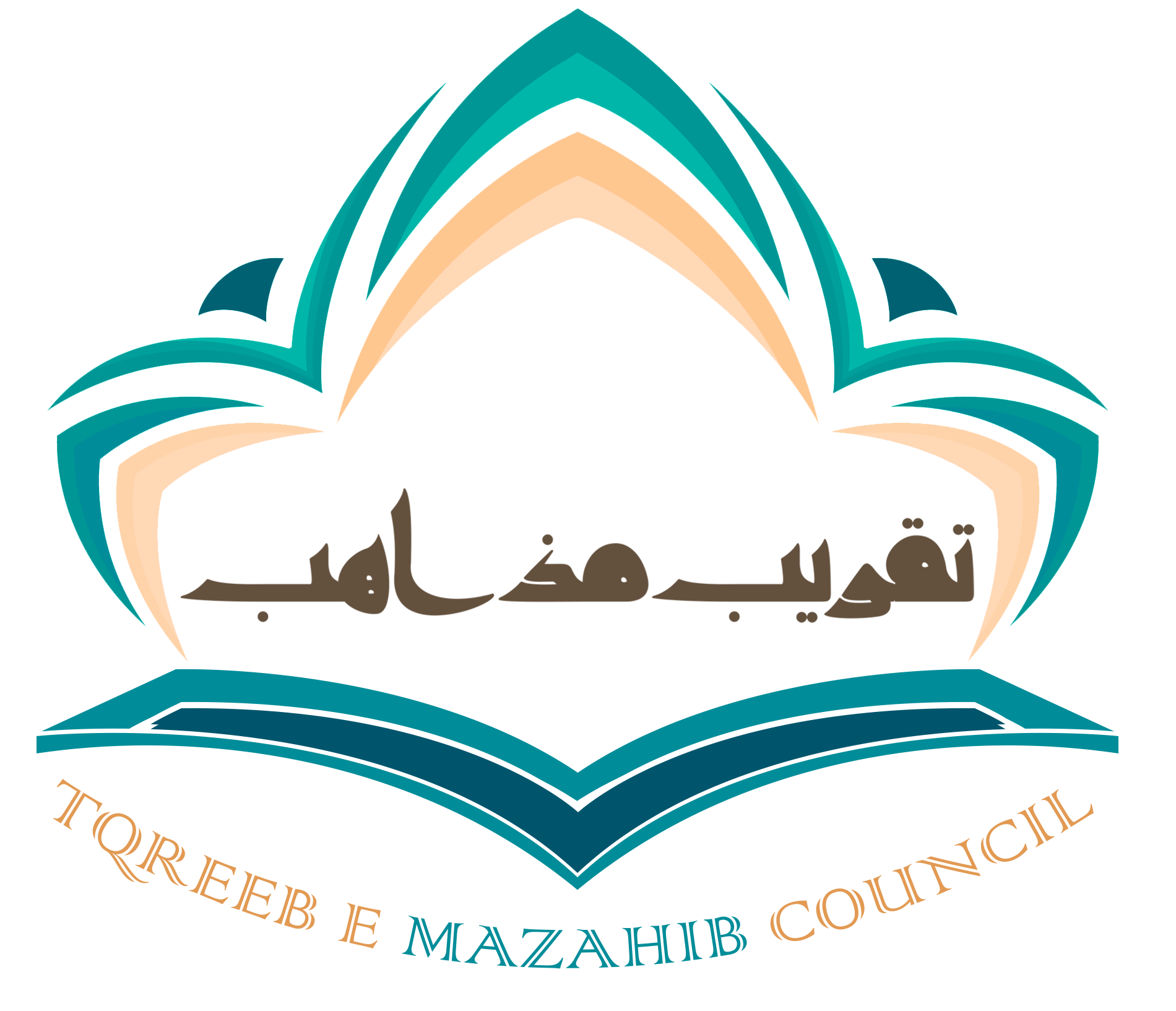Key Issues
Key Issues 1st: Truth
At Taqreeb-e-Mazahib Council, we prioritize the pursuit of truth as a fundamental aspect of fostering unity and harmony across different faiths and cultures. Rooted in Islamic principles, our commitment to truth guides our efforts to bridge divides and promote understanding worldwide. We believe that truth is the foundation of justice, peace, and strong relationships among people.
Truth in Islam
In Islam, the concept of truth holds a central place. The Qur’an encourages believers to be truthful in all aspects of life, including speech, behavior, and intentions. The Qur’an states:
“O you who have believed, fear Allah and be with those who are true.” (Qur’an 9:119)
This verse underscores the importance of truthfulness and urges believers to surround themselves with people who are honest and sincere. It emphasizes that a community built on truth is one that fosters trust and unity.
The Prophet’s (s.w) Emphasis on Truthfulness
The Prophet Muhammad (peace be upon him) was known for his truthfulness, even before his prophethood. His nickname, “Al-Amin” (The Trustworthy), reflects his reputation for honesty and integrity. He taught his followers the importance of truth in their words and deeds. The Prophet said:
“Truthfulness leads to righteousness, and righteousness leads to Paradise. Lying leads to wickedness, and wickedness leads to Hell.” (Bukhari and Muslim)
This hadith illustrates that truthfulness is not only a moral virtue but also a path to righteousness and ultimate salvation. It also serves as a warning against the dangers of dishonesty and falsehood.
The Wisdom of Imam Ali (a.s)
Imam Ali (a.s), the cousin and son-in-law of the Prophet Muhammad (peace be upon him), was renowned for his wisdom and commitment to truth. He often spoke about the value of honesty in building a just society. Imam Ali (a.s) once said:
“Truth is bitter but its result is sweet; falsehood appears to be sweet but it is poisonous.”
This quote highlights the idea that truth may not always be easy to accept, but it ultimately leads to positive outcomes. It encourages people to choose truth even when it is challenging, as the rewards are worth the effort.
The Teachings of Imam Jafar Sadiq (a.s)
Imam Jafar Sadiq (a.s), a descendant of the Prophet Muhammad (peace be upon him), also emphasized the importance of truth. He provided guidance on how to live a truthful life. He said:
“Trust and truth are the gateways to faith. Without them, there is no faith.”
This teaching from Imam Jafar Sadiq (a.s) connects truth with faith, emphasizing that truth is essential for a strong relationship with God. It reminds us that faith cannot exist without honesty and trustworthiness.
Promoting Truth for a Better World
At Taqreeb-e-Mazahib Council, we are dedicated to promoting truth as a cornerstone of unity and harmony. We believe that truthfulness can help resolve conflicts, build stronger communities, and create a more just world. Our initiatives focus on fostering dialogue, encouraging transparency, and educating people about the importance of honesty.
By embracing truth in all aspects of life, we can create a society where people trust each other, work together, and overcome divisions. Join us in our mission to promote truth and build a brighter future for everyone. Together, we can make a positive impact on the world.
Key Issues 2nd: Humanity
At Taqreeb-e-Mazahib Council, our mission is to foster unity and promote harmony among all human beings, transcending religious, cultural, and ethnic boundaries. We believe in one God and are guided by the principles of Islam, which underscore the importance of humanity, compassion, and justice. Our goal is to create a world where people of all backgrounds can coexist in peace and work together for the betterment of humanity.
The Islamic Perspective on Humanity
Islam views humanity as one family, with all people being the descendants of Adam and Eve. The Qur’an emphasizes the importance of recognizing our shared origins and embracing diversity. In Surah Al-Hujurat, it states:
“O mankind, indeed We have created you from male and female and made you peoples and tribes that you may know one another. Indeed, the most noble of you in the sight of Allah is the most righteous of you.” (Qur’an 49:13)
This verse teaches us that diversity is a blessing and that true nobility comes from righteousness, not from race, gender, or nationality. By recognizing our common humanity, we can build bridges and foster understanding among different communities.
Compassion and Mercy in Islam
The teachings of the Prophet Muhammad (peace be upon him) highlight the importance of compassion and mercy toward all people. The Prophet famously said:
“Those who are merciful will be shown mercy by the Most Merciful. Be merciful to those on earth, and the One in the heavens will be merciful to you.” (Tirmidhi)
This hadith serves as a reminder that our treatment of others should be rooted in kindness and compassion. By showing mercy to those around us, we can create a more harmonious and just society.
Justice and Fairness as Core Principles
Justice and fairness are central to Islamic teachings. The Qur’an repeatedly calls for justice, urging believers to stand firm in their commitment to fairness, even in challenging circumstances. In Surah An-Nisa, it states:
“O you who have believed, be persistently standing firm in justice, witnesses for Allah, even if it be against yourselves or parents and relatives.” (Qur’an 4:135)
This verse emphasizes that justice should be pursued regardless of personal relationships or biases. It is a call to uphold truth and fairness in all aspects of life, ensuring that everyone is treated equitably.
The Legacy of Imam Hussain (a.s)
Imam Hussain (a.s), the grandson of the Prophet Muhammad (peace be upon him), is a symbol of justice, sacrifice, and humanity. His stance against oppression and injustice at the Battle of Karbala has inspired countless individuals to stand up for truth and compassion. One of his well-known quotes is:
“If you don’t believe in any religion and don’t fear the Resurrection, at least be free in this world.”
This quote resonates with the message of humanity, urging us to act with integrity and uphold the values of freedom and justice, even in the absence of religious belief.
Building a Better World
Taqreeb-e-Mazahib Council is committed to building a world where humanity, compassion, and justice are at the forefront. Our initiatives include interfaith dialogues, humanitarian projects, and educational programs designed to bridge divides and promote understanding. We believe that by embracing our shared humanity, we can work together to create a brighter and more peaceful future for all.
Join us in our mission to promote unity and humanity across the globe. Together, we can make a difference.
Key Issues 3rd: Unity
At Taqreeb-e-Mazahib Council, our mission is to promote unity and harmony among all people, focusing on the values that bind us together as a global community. Grounded in the principles of Islam, we believe that true unity stems from understanding, respect, and compassion. We aim to bridge divides and foster a sense of belonging among people of different backgrounds, faiths, and cultures.
Unity in Islam
Unity is a central theme in Islam. The Qur’an emphasizes that believers are part of one Ummah, a single community bound by faith and shared values. The Qur’an states:
“And hold firmly to the rope of Allah all together and do not become divided.” (Qur’an 3:103)
This verse calls on believers to remain united, reminding us that division weakens the community. By holding onto the “rope of Allah,” which represents divine guidance and faith, we can overcome differences and build a cohesive society.
Unity through Compassion and Brotherhood
The teachings of the Prophet Muhammad (peace be upon him) encourage compassion and brotherhood among believers. In a famous hadith, the Prophet said:
“The believers in their mutual kindness, compassion, and sympathy are just like one body. When one of the limbs suffers, the whole body responds to it with wakefulness and fever.” (Bukhari and Muslim)
This hadith illustrates the concept of unity by comparing the Muslim community to a single body. When one part is in distress, the entire body feels the pain. It is a reminder that our strength lies in our collective support and empathy for each other.
The Wisdom of Imam Ali (a.s)
Imam Ali (a.s), the cousin and son-in-law of the Prophet Muhammad (peace be upon him), was known for his wisdom and emphasis on justice. He believed in the power of unity to bring about positive change. One of his notable quotes is:
“People are of two kinds: they are either your brothers in faith or your equals in humanity.”
This quote encapsulates the idea that unity extends beyond religious boundaries. It reminds us that even if we do not share the same faith, we share a common humanity. This perspective encourages tolerance, respect, and collaboration among all people, regardless of their beliefs.
The Importance of Unity in Building a Better World
Taqreeb-e-Mazahib Council is committed to promoting unity as a means to create a more peaceful and harmonious world. We believe that by fostering a sense of togetherness, we can address many of the challenges facing our global community. Our initiatives include interfaith dialogues, community-building projects, and educational programs designed to bridge gaps and promote mutual understanding.
Through our work, we aim to demonstrate that unity is not just an abstract concept, but a practical approach to solving real-world problems. By coming together and embracing our differences, we can create a more inclusive and compassionate society.
Join us in our mission to promote unity and understanding across the globe. Together, we can build a world where everyone feels valued and respected.






